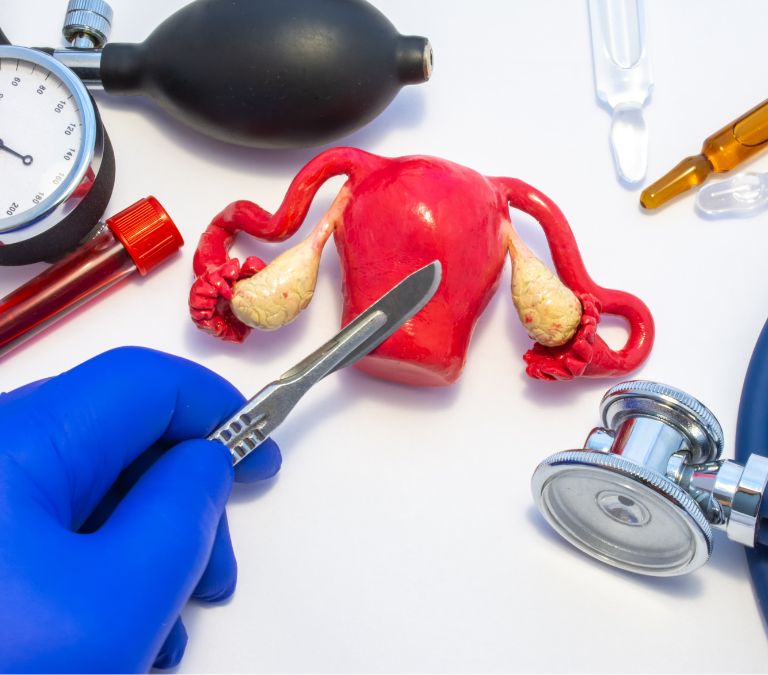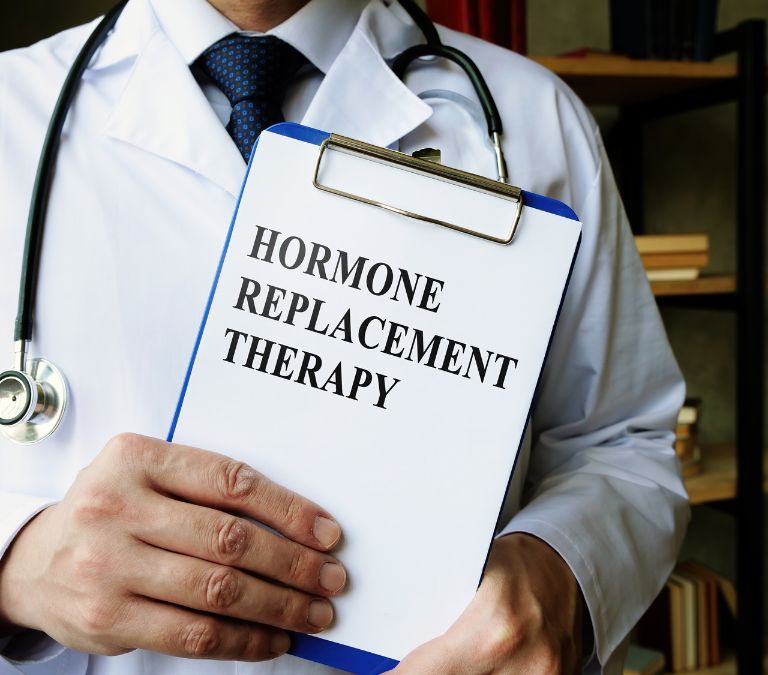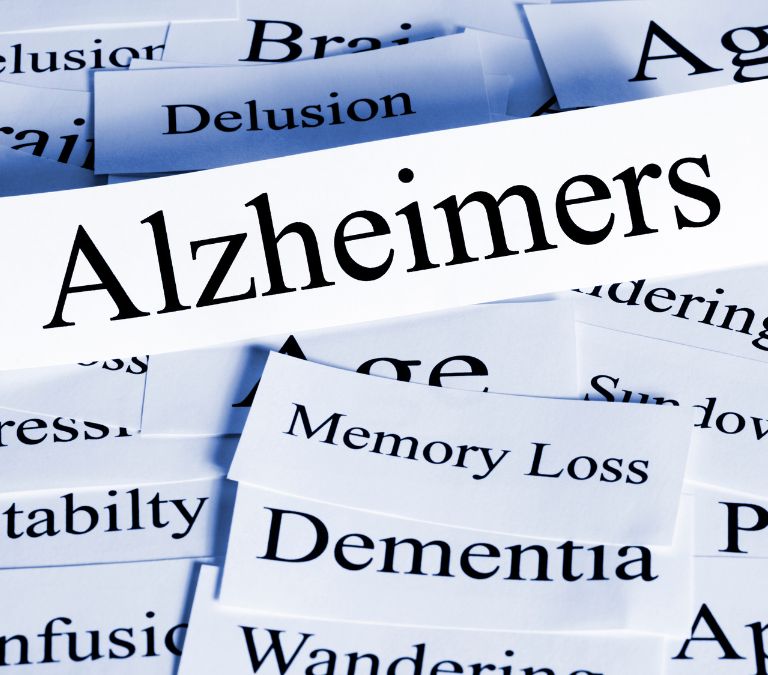Do you know that women make up two-thirds of Alzheimer’s patients? Yes, it seems like women got the short end of the stick again with this disease.
Alzheimer’s! This disease has defied all forms of treatment. Every drug trial has been met with massive failure. Alzheimer’s is considered the most common form of dementia. It affects people 65 years and above and seems to particularly affect women. I mean, statistics don’t lie!
Why is this the case, though? Why does it seem like women are at a higher risk of suffering from this condition? Most people believe it is because women have a longer life expectancy than men. This reason could be valid, but most scientists disagree. They say that the numbers are not adding up and that there has to be another reason why this happens.
It seems that the answer is menopause. Studies show that as women transition into menopause, they become more at risk of getting this disease. Let’s get a bit sciency, so we can understand precisely how this happens.
During the menopausal transition, our body begins to age, our hair becomes drier and a lot easier to fall off, and our skin starts to age too, but what if the same thing happens to your brain during menopause? What if our brain cells begin to age faster at this phase of our lives too?
According to research, brain cell atrophy reduces brain energy and marked increase in Alzheimer’s plaques ( this is one of the early indicators of Alzheimer’s. It is formed when a sticky protein called Beta Amyloid clumps together.) is seen in women going through the menopausal transition.
But then, what exactly could be the reason for this? Why are these signs common among menopausal women? I would like you to pause for a minute and think about the answer could be? Yes! Estrogen is the answer, which should not be more of a surprise.
I mean, estrogen suffers a marked decrease as we transition through this phase of our life. And estrogen also serves as a neuroprotective hormone! What are neuroprotective hormones? They are hormones that play a protective role in the brain.
If this hormone were to be reduced in the body, the brain would lose some of its protection. This lack of security will leave the brain more vulnerable than it usually is. So when women with this vulnerable brain are exposed to the risk of Alzheimer’s disease, they become prone to suffer from it more.
Let’s understand something, though. It does not mean that menopause and the drop in estrogen that comes with it is a causative agent of Alzheimer’s disease. It is more like a trigger. Alzheimer’s is still possible without menopause, but menopause triggers it to happen earlier than it usually would.
You see, menopause brings about a permanent change in the brain. The brain loses some of its juice, making it vulnerable not only to Alzheimer’s but to many other cognitive disorders.
What then causes Alzheimer’s?

During Alzheimer’s, the brain begins to shrink mainly because of brain cell death. It is a progressive and continuous process, and to this very moment, scientists still do not know the exact cause of Alzheimer’s. It has been chucked up to age-related changes in other factors like genetics, lifestyle, and the environment the person stays in.
Some risk factors of Alzheimer’s include:
- The most common risk factor is age. As we grow older, the risk of developing Alzheimer’s keeps increasing. So the older we get, the more likely we may have Alzheimer’s. It is one of the reasons for the widely pervasive yet inconclusive belief that women have Alzheimer’s more because they tend to live longer, generally, than men do.
- Family medical history and genetics have also been implicated as one of the risk factors for Alzheimer’s. I read somewhere that you are more likely to have Alzheimer’s if you have a first-degree family member who does. It means if one of your parents or siblings has Alzheimer’s, you are much more likely to have it.
- Sex seems to be a factor and the reason for this particular article. It looks like women are more likely to have Alzheimer’s than men are.
- It would be more likely to have Alzheimer’s if you had a mild cognitive disorder. This disorder is marked by having lesser memory or thinking skills than is normal for your age.
- Severe head trauma is another risk factor for Alzheimer’s.
- Air pollution has also been implicated. It seems that the burning of fossil fuels can induce early-onset Alzheimer’s.
- Some lifestyle choices like alcohol consumption, sleep patterns, lack of exercise, smoking, e.t.c. have also been shown to induce Alzheimer’s.
Considering the changes that occur to a woman’s brain during menopause and the period leading up to menopause. We must take a different approach to handle this situation for women. Lifestyle changes and treatment options should be made available to women who are still cognitively healthy but coming close to the end of their reproductive cycle. These particular findings bring about new questions to the forefront. We will look at these questions and hopefully provide answers to them.
Can Having a Hysterectomy Increase Your Risk of Having Alzheimer’s?

The question above is very logical. Since we have observed that hormonal changes due to menopause can increase your chances of having Alzheimer’s, it should follow that a hysterectomy will give rise to a similar effect.
Women who undergo a hysterectomy are at a higher risk of developing dementia and other cognitive disorders. This risk is further increased if the hysterectomy is done in addition to a unilateral or bilateral oophorectomy.
And this is, again, due to the effects of estrogen. These procedures cause a reduction in the level of available estrogen, and after a long period of exposure to low estrogen, the brain is at risk of these conditions.
It is a relatively new development. One must warn women of the risk of developing Alzheimer’s once they get any of these procedures done.
Does Hormone Replacement Therapy Increase the Risks of Getting Alzheimer’s?

As menopausal and our symptoms start to show, we begin to look for ways to combat said symptoms. The main treatment prescribed for most women, although otherwise indicated, is hormone replacement therapy. Hormone replacement therapy (HRT) is a treatment that uses female hormones (estrogen and progestogen) to address symptoms, including hot flashes and night sweats in women going through menopause.
However, while the use of hormone replacement therapy might come with its blessing, it does have its risk. You have probably heard of how prolonged use of this treatment can lead to some conditions. Recently another chance has come to light. It seems menopausal women who use hormone replacement therapy to treat their menopausal symptoms might be more at risk of developing Alzheimer’s.
In a study I was reading, I found that when compared to women who did not use HRT before the age of 60, using HRT that comprised both estrogen and progestogen was related to a 17 percent increased risk of Alzheimer’s disease. There was a 9% increased incidence of Alzheimer’s among women who had a hysterectomy and started an estrogen-only hormone replacement therapy before age 60. Only women who took HRT in oral or patch form for more than ten years were at an increased risk. The use of vaginal estrogen-only was not linked to an increased risk of Alzheimer’s disease. It is because it serves only for the treatment of localized symptoms.
Hormone replacement therapy (estrogen and progestogen or estrogen alone) has also been linked to a 15-38 percent increased risk of Alzheimer’s disease in women who began taking it after the age of 60 than in women who did not take it. After 3-5 years of HRT use, the elevated risk was evident in this age range. Although these findings are concerning, the rise in the absolute risk of Alzheimer’s disease is minor. It underscores the importance of hormone therapy in recently menopausal women for symptomatic relief only if the benefits they would get from it supersede the risks.
Individuals must choose whether or not to take hormone therapy. Your risk factors, symptoms, and preferences must all be considered.
Although the risk might be small, it adds to the stack. If you have been reading, you will find out that women are at a higher risk of suffering from Alzheimer’s. I mean, men make up a third of all the people with this condition, the rest being women. That is a whole lot of women if you ask me.
Does Hormone Replacement Therapy Increase The Risk Of Dementia?
Okay, so we have decided that hormone replacement therapy slightly increases our chances of developing Alzheimer’s. That should leave us wondering if it plays a role in the occurrence of other forms of other cognitive disorders? Let us look at what dementia is, to begin with.
Dementia is a phrase that refers to a set of symptoms that impact your memory, reasoning, and social abilities to the point where they interfere with your regular activities. When you are diagnosed with dementia, your quality of life is affected. The quality of life also depends on the severity, and you might be confined. A single disease doesn’t cause dementia, but many of them can cause it.
Memory loss is a common symptom of dementia, but various factors can cause it. Memory loss isn’t always a marker of dementia. However, it is generally one of the first symptoms people will notice.
Alzheimer’s is the most prevalent type of progressive dementia in older people, but various other conditions can also cause dementia. Some dementia symptoms may be reversible, depending on the reason.
Since hormone replacement therapy has been shown to increase the risk for Alzheimer’s, it should follow that it will increase the risk of other forms of dementia. Well, that isn’t the case. This particular topic has been the crux of many discussions, and research into this field has been inconclusive. But recent studies have taken a deeper look into this discussion. There was a recent study in Finland. The study examined the effect of this treatment on a massive 600,000+ people.
They considered other important factors while running the analysis, including family history, smoking, alcohol intake, and pre-existing conditions.
The researchers observed that there appeared to be no general links between the use of hormone therapy and the risk of dementia after correcting for a wide range of potentially confounding characteristics, independent of hormone type, administration, dose, or treatment duration.
The study was broken into subgroups according to the results. Researchers discovered a 15% lower incidence of dementia among women under 80 who had been on estrogen-only therapy for ten years or more.
However, examining cases with a precise diagnosis of Alzheimer’s disease revealed that estrogen-progestogen therapy was related to a modest increase in risk. It is following other studies on the matter.
So do you think there is a connection between menopause and Alzheimer’s? It looks very much like it. There is a connection between the drop in estrogen seen in menopause. However, while the decline in estrogen level has been linked to this condition, it doesn’t seem as if hormone replacement therapy helps much.
It looks like hormone replacement therapy increases this risk, even though the same treatment does not affect other forms of dementia overall. My advice? If you want to get your symptoms treated with hormone replacement therapy, make sure you talk with your healthcare provider to ensure that the risk is kept at a minimum and create that treatment plan that is meant just for you.







